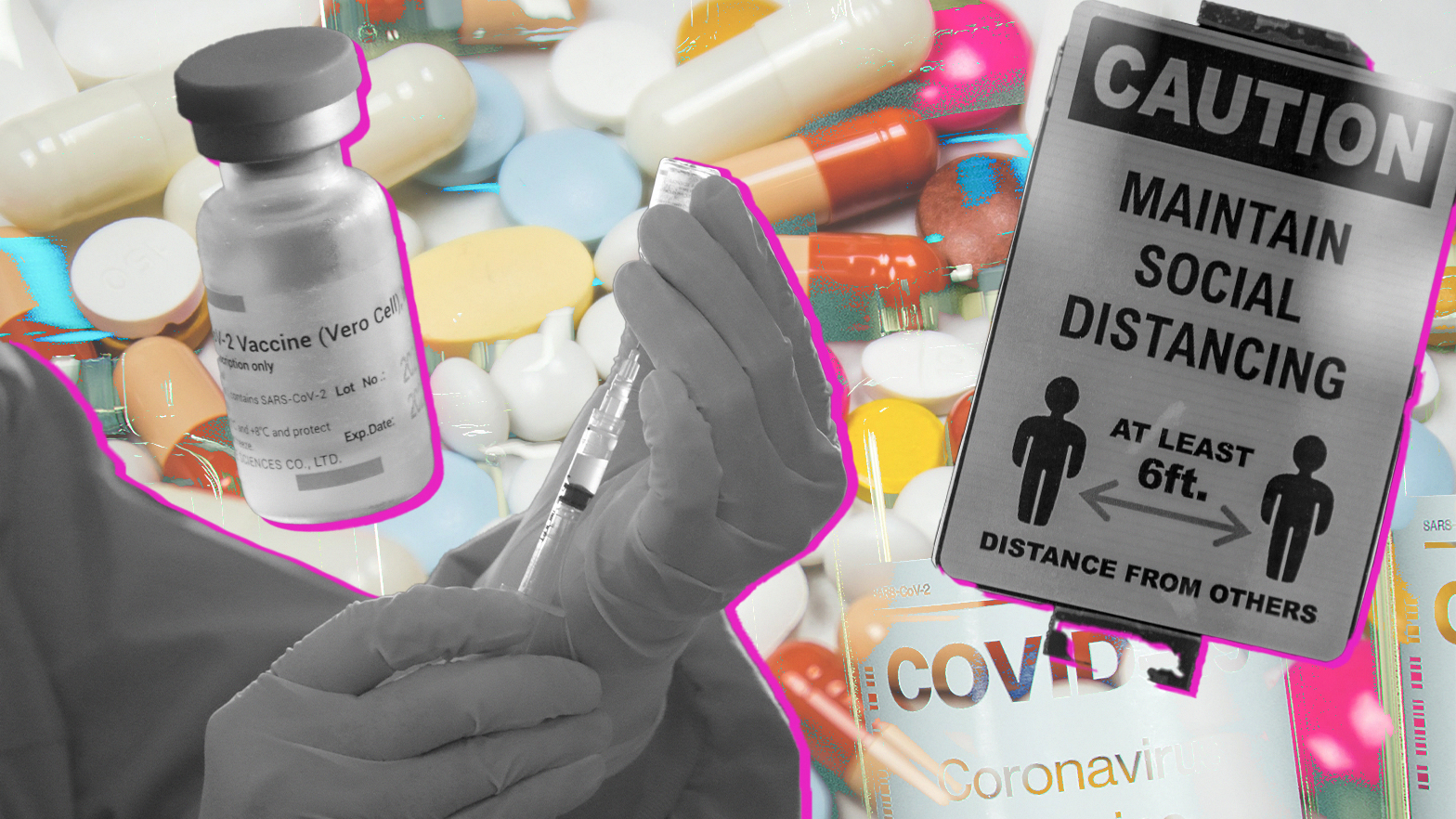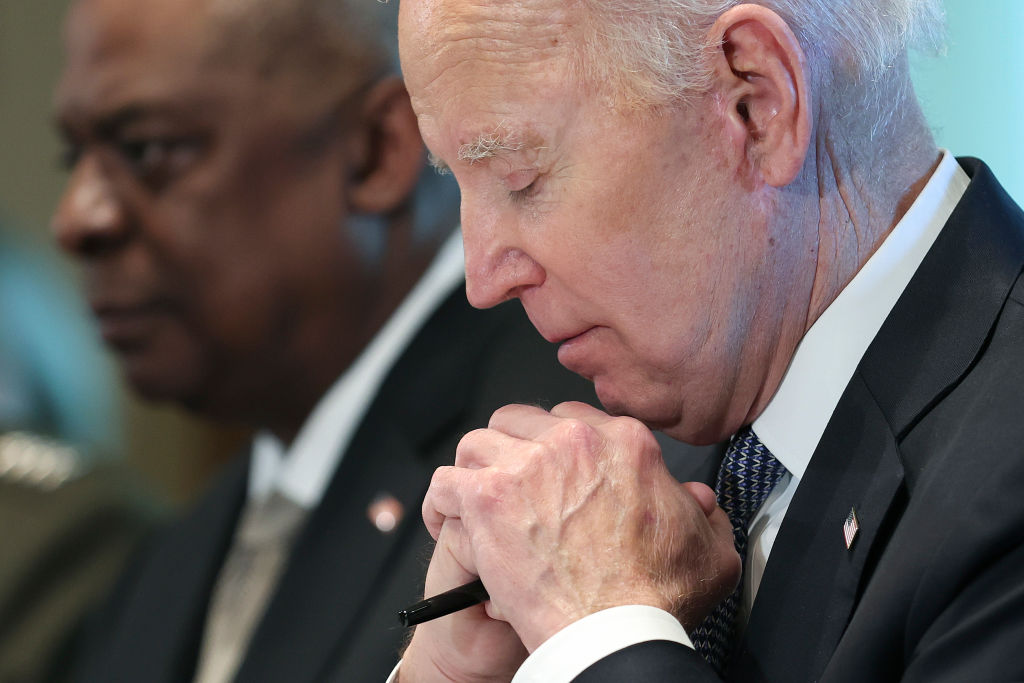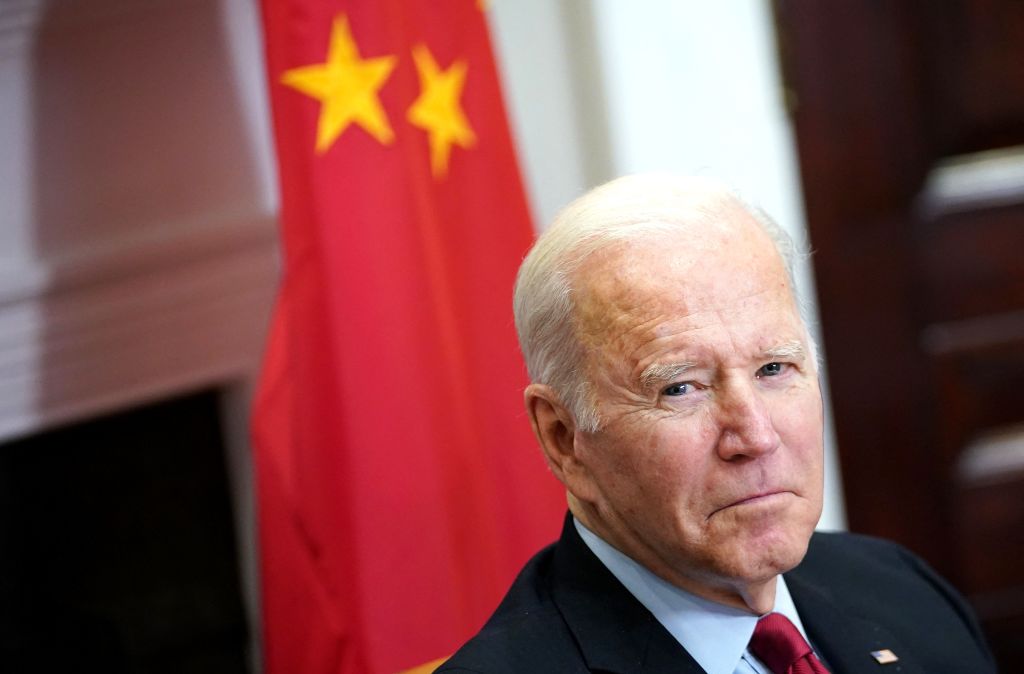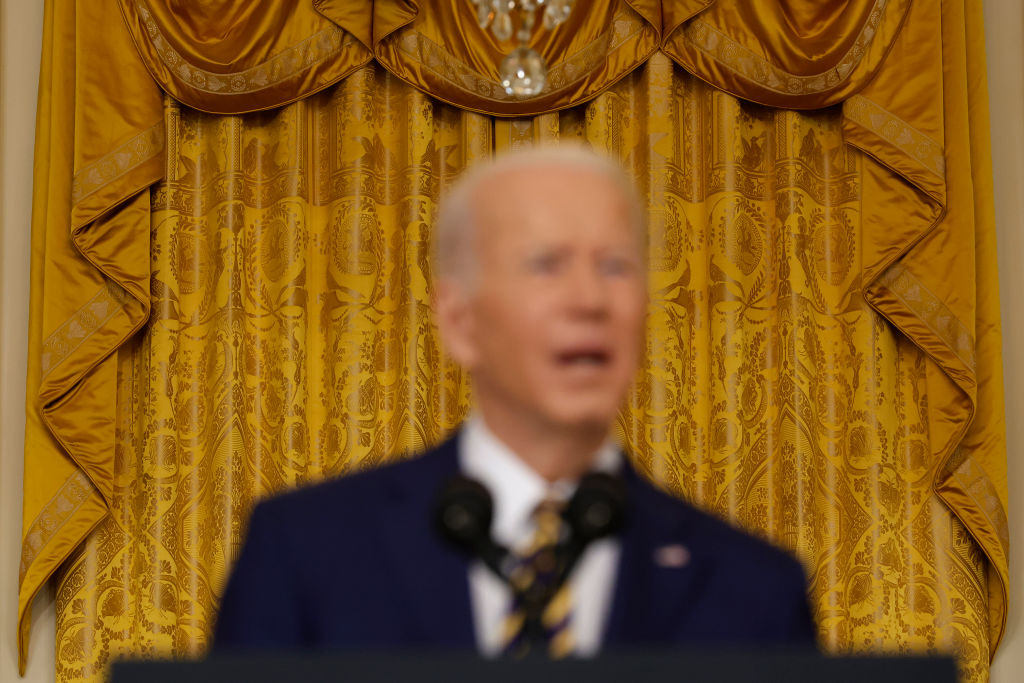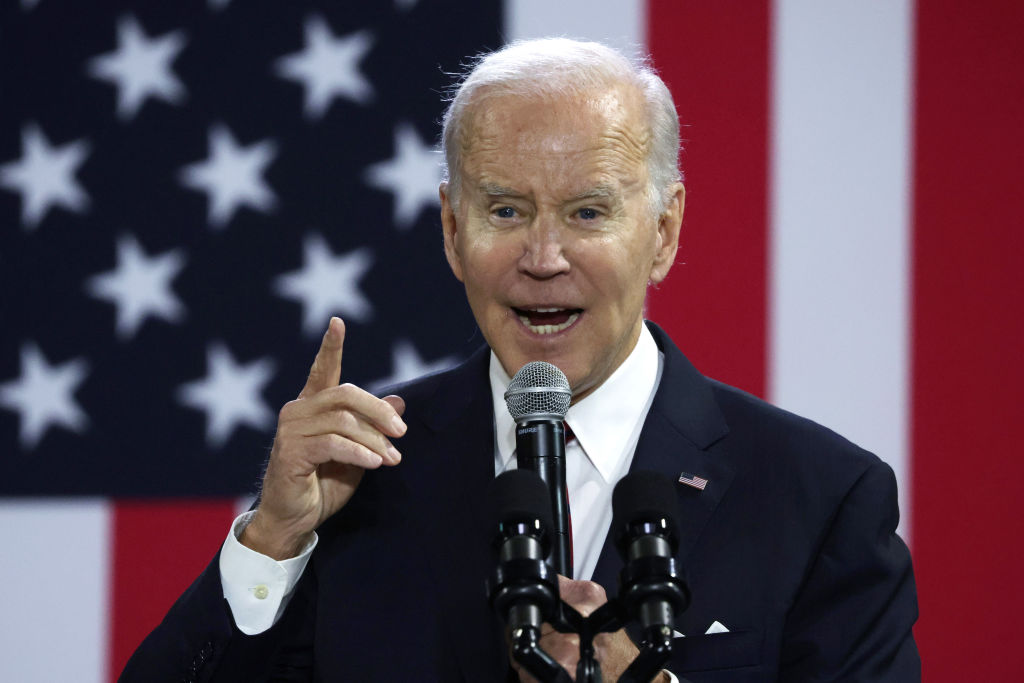Government censorship of dissenting scientists needs to stop.
Money Grab
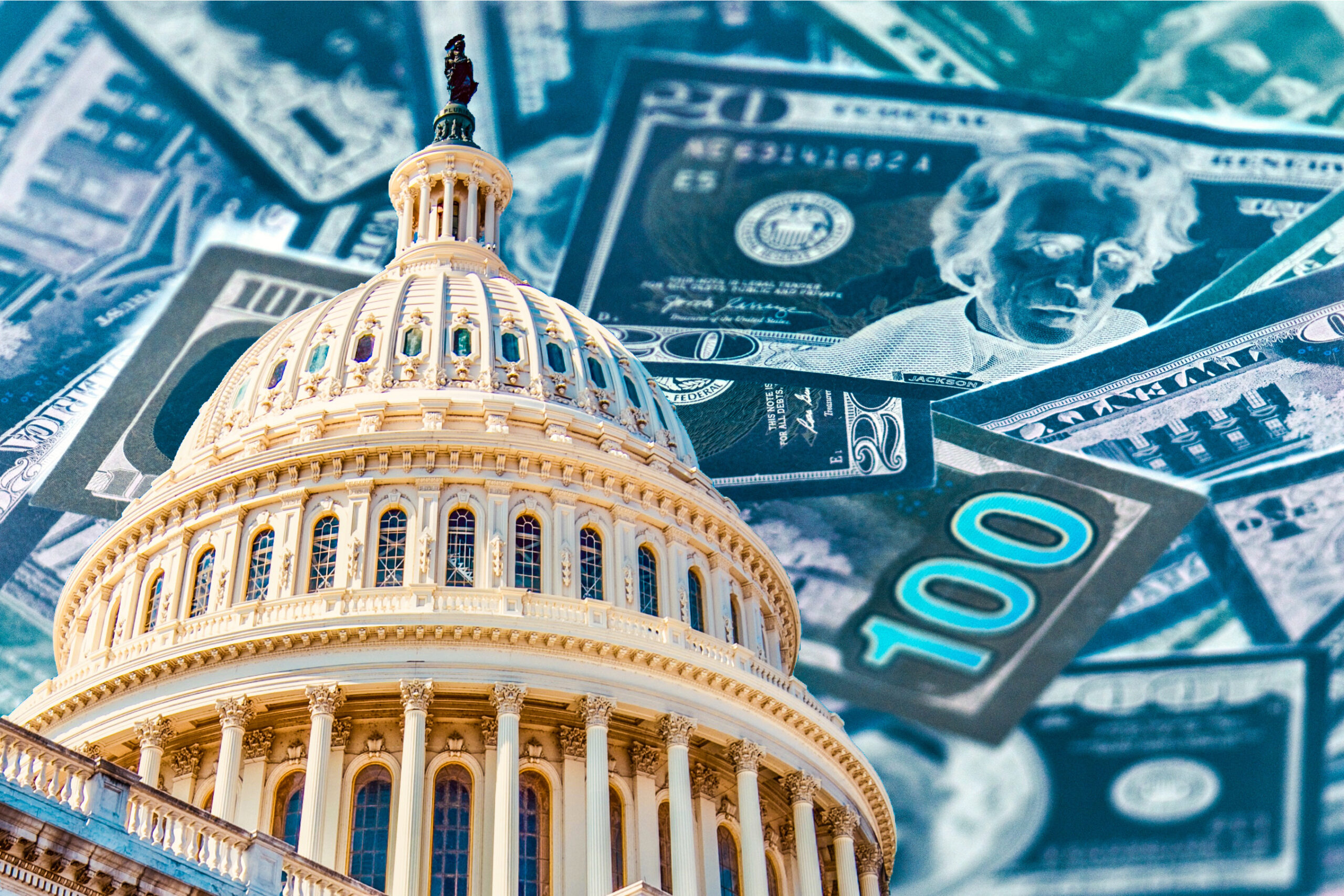
The Biden Administration’s student loan forgiveness program sacrifices the country’s fiscal health for a shot at winning in November.
The United States is hemorrhaging money as the national debt now stands at close to $35 trillion. By 2033, it will grow by another $19 trillion. The current debt of the United States is now calculated to be 130 percent of its gross domestic product, placing it among the most indebted countries in the world.
President Biden doesn’t seem to care. Last week, the Biden Administration announced it will utilize existing student loan forgiveness programs to eliminate an additional $7.4 billion in student debt for at least 277,000 borrowers. Additionally, last year the administration rolled out a repayment plan to expedite loan forgiveness for many low-income borrowers, which has sparked legal challenges from a number of Republican-led states.
Overall, the Biden Administration has approved the cancellation of—wait for it—$153 billion in student loan debt for nearly 4.3 million individuals. To put that in perspective, the cancellation represents roughly 9 percent of all outstanding federal student loan debt.
This is concerning for a number of reasons.
As a report by the Foundation for Economic Education (FEE) pointed out, nothing good comes from canceling student debt, especially not on such an expansive scale. The negative consequences of such “forgiveness” will punish tens of millions of Americans, many of whom are struggling to make ends meet, and for many decades to come.
If 4.3 million individuals are forgiven this year, there will be another few million demanding forgiveness next year, and the year after that and so on. As the FEE report warns, it’s very easy to see how such a scheme could morph into a sort of universal basic income for college students, where the government basically hands out thousands of dollars to every student. Younger generations are synonymous with entitlement, a genuine belief that the world owes them something. A college-oriented version of UBI would only make things many times worse.
Moreover, as the authors add, forgiving debt will not result in a better educated populace. On the contrary, it sets a dangerous precedent. An increasing number of students will major in subjects that are highly unlikely to secure them employment, while others will simply treat the college experience as a multiyear vacation financed by you, the taxpayer. When there is no penalty for wasting time, missing classes, and flunking exams, no one prospers. We all pay in one way or another.
Furthermore—and this is a key point—educational institutions are almost certain to increase the cost of tuition. Debt cancellation contributes significantly to soaring college tuition fees. Essentially, when individuals are provided with additional funds to cover expenses, the cost of those expenses increases. Numerous research studies have identified a significant inflationary impact. A study conducted by the Federal Reserve Bank of New York revealed that colleges increased their prices by 60 cents for every dollar increase in “subsidized” student loans.
In 1987, then-Secretary of Education William J. Bennett wrote an article for the New York Times titled “Our Greedy Colleges.” “If anything, increases in financial aid in recent years have enabled colleges and universities to blithely raise their tuitions,” the conservative educator noted, “confident that Federal loan subsidies would help cushion the increase.”
He was right then, and he’s right now.
In addition to contributing to the national debt and driving up tuition fees, student debt cancellation leads to a quicker rise in prices, worsening inflationary trends.
And that doesn’t even consider the justifiable backlash from taxpayers. The country is already fiercely divided. Canceling debt for more than four million people will only pour more gas on the ferocious flames.
Moreover, the canceling of debt punishes the students who never asked for a handout. In some ways, it rewards failure and ignores fortitude. As the authors of the FEE report ask, why not reward those who worked multiple jobs or attended less prestigious schools to avoid accumulating debt? Oh yes, and what about those diligent souls who have already paid off their student loans and are now debt-free? No handouts for them, which seems a little odd, even cruel.
Ultimately, though, there is no such thing as “free” education. The idea of cancellation is a farce, little more than semantic gymnastics.
Someone has got to pay. And if it’s not the students, then it’s someone else—yes, probably you.
Does the Biden Administration care? Obviously not.
Joe Biden has November on his mind and views canceling student debt as a way of securing a second term in office. Specifically, he’s targeting the female vote, as the vast majority of college students today are women.
Many Republicans have strongly criticized Biden’s initiatives for student loan forgiveness, claiming the president is shifting the financial burden on taxpayers who did not attend college or have already paid off their loans. Additionally, they argue Biden is bypassing the Supreme Court, which invalidated his key student loan forgiveness program in 2023.
As is clear, debt forgiveness comes with a whole host of dangers. In truth, it only serves to make a nation weaker, not stronger.
At the very least, to qualify for debt forgiveness, students should have to give something in return: be it time spent tidying up their local community or participating in some sort of volunteer program. Because, at the moment, they are getting money for nothing, while others are left to pick up the ever-growing tab.
The American Mind presents a range of perspectives. Views are writers’ own and do not necessarily represent those of The Claremont Institute.
The American Mind is a publication of the Claremont Institute, a non-profit 501(c)(3) organization, dedicated to restoring the principles of the American Founding to their rightful, preeminent authority in our national life. Interested in supporting our work? Gifts to the Claremont Institute are tax-deductible.
The administration threatens to use U.S. power globally to advance its progressive agenda.
The Biden Administration sets tough new trade policies against Beijing, but is it too little, too late?
A Texas court puts the brakes on an astounding executive branch power grab.
The administration routinely disregards the Constitution, federal statutes, and republican norms.
Zimbabwe-style monetary policy comes to the U.S. Mint.

